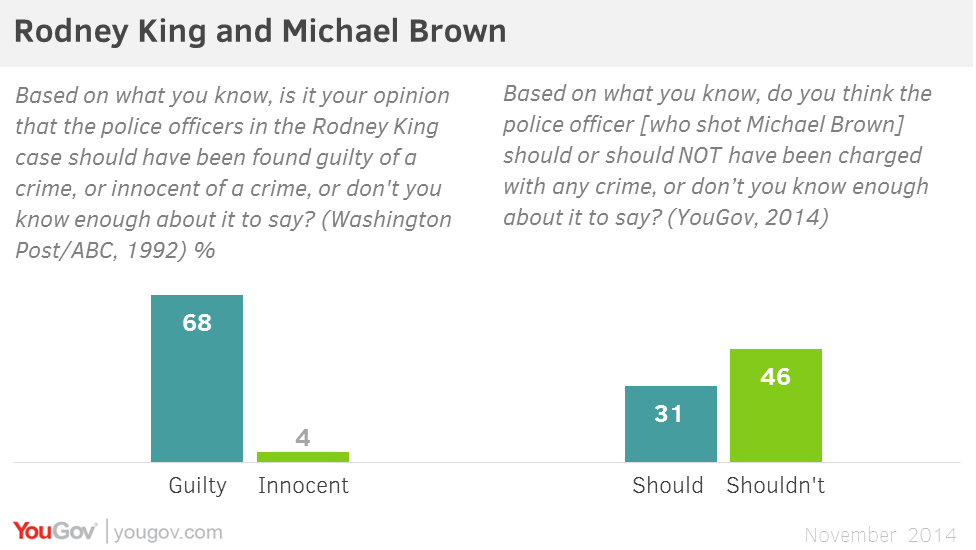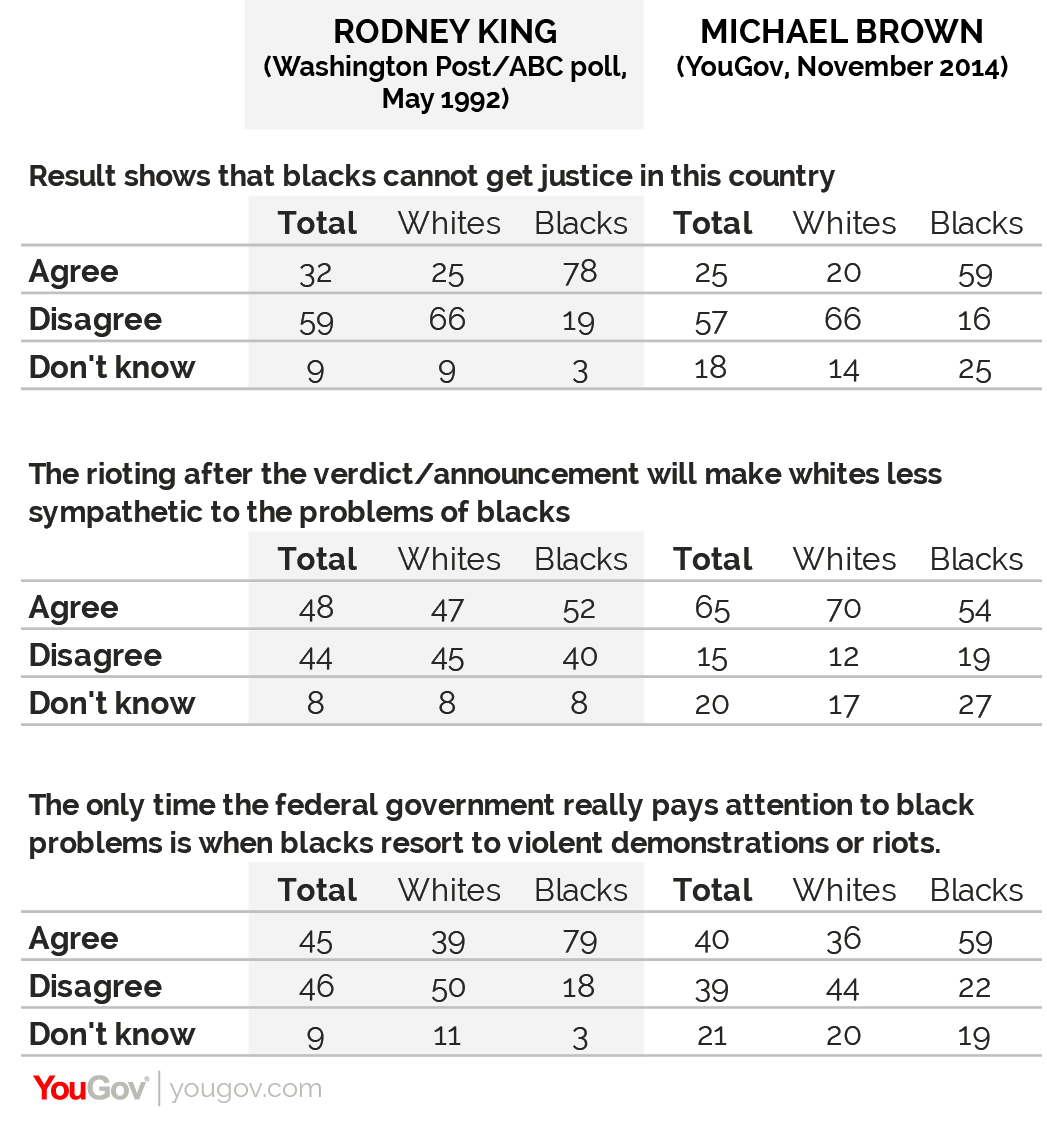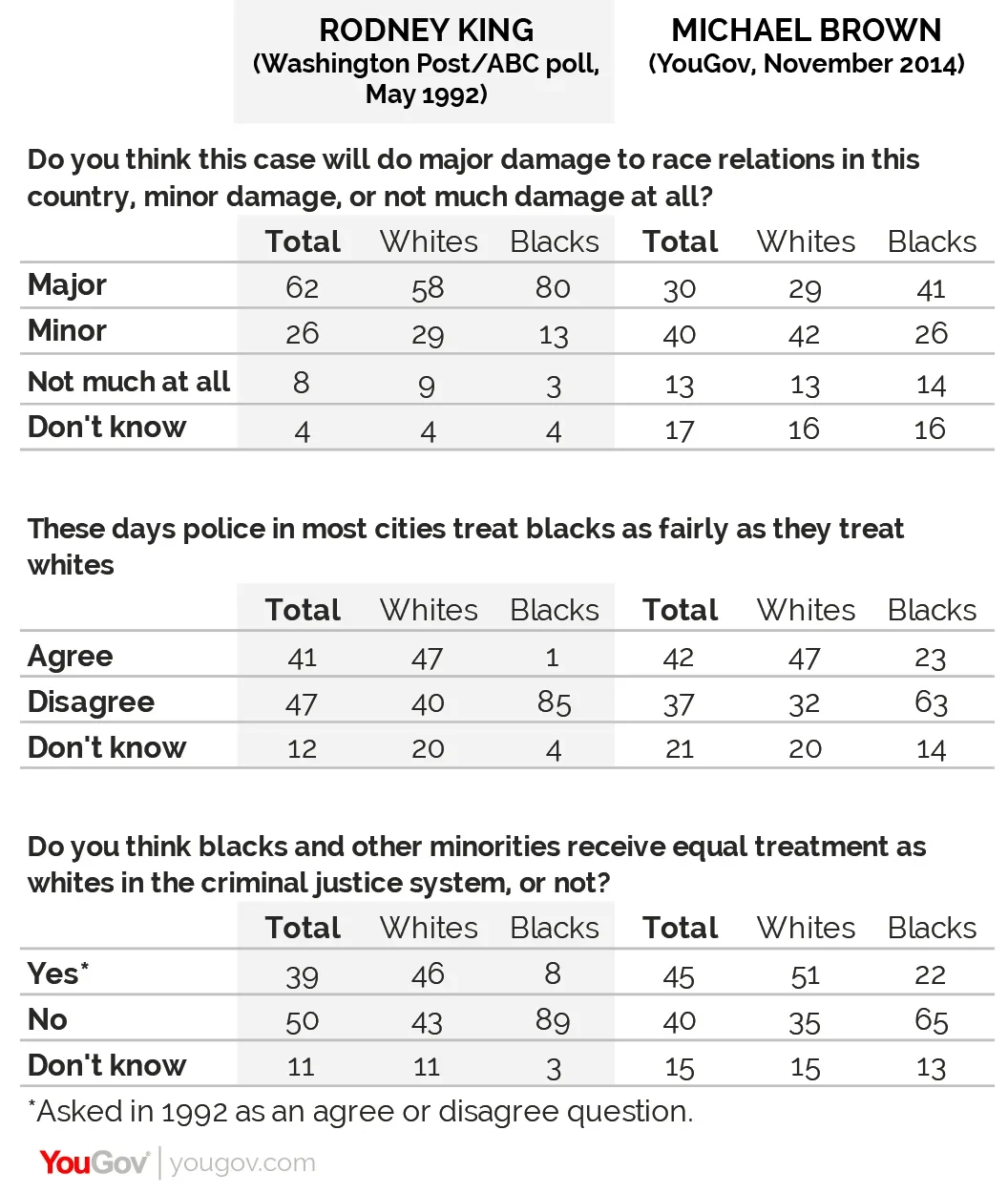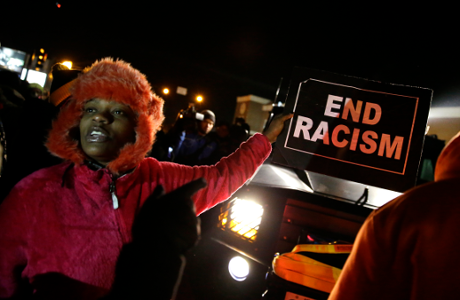In 1992 most Americans thought that the officers who beat Rodney King were guilty of a crime, but now people tend to say that Darren Wilson is innocent
A violent incident involving a young black man and white police officers, leading to a public outcry, protests, and ultimately riots. The events before and after the acquittal of the Los Angeles police officers who beat up Rodney King in 1991 bear many striking similarities to the events surrounding the recent grand jury decision not to indict police officer Darren Wilson with any crime for the shooting death of Missouri teenager Michael Brown.
YouGov repeated a series of questions first asked in a Washington Post/ABC News poll in May 1992 (following the announcement of the King verdict and the riots that followed), putting the Brown case in the place of King. The surveys suggest that while both events were racially polarizing, there are more differences than similarities. In particular, Americans are more divided about the circumstances surrounding Brown's death than they were about King's beating, and both black and white views of the criminal justice system have improved since 1992.
Two verdicts
Probably the biggest difference in opinions about the two incidents relates to the culpability of the police. In 1992, the American public overwhelmingly believed the police officers who were videotaped beating Rodney King were guilty of abuse, with 68% believing them guilty and only 4% believing them innocent. This included the vast majority of African Americans (92%), but also 64% of whites who thought the police officers committed a crime.
By contrast, Americans tend to agree with the grand jury decision not to charge Darren Wilson, the officer who shot Brown, with a crime. This is mostly because the majority (52%) of whites (and 46% of all Americans) believe Wilson should not have been charged. The majority (71%) of blacks (and 31% of the entire public) take the opposite view.

Race relations – evidence of improvement?
More Americans disagreed than agreed that the Rodney King case (59% to 32%) was evidence that “blacks cannot get justice in this country”, just as people tend to disagree with that statement regarding the Michael Brown case (57% to 25%). In both cases, there was a stark racial divide, with most disagreeing and most blacks agreeing.

Americans 20 years ago and Americans today are both evenly divided over whether the federal government “only pays attention to black problems when blacks resort to violent demonstrations or riots”. However, people today are much more likely to believe rioting “will make whites less sympathetic to black problems” than they were before. 65% agree and 15% disagree with that statement today, compared to 1992 when 48% agreed and 44% disagreed. Interestingly, only 47% of whites agreed the rioting in 1992 would lead to less sympathy for blacks, versus 70% who say it will today.
Even so, the Brown case is not perceived to be so damaging to race relations in American as the King verdict. 62% of Americans said the Rodney King verdict would do “major damage” to race relations in the country. Half as many, 30%, say the same for the Michael Brown decision.

General opinions about race and the criminal justice system are also less racially polarized than they were, due in part to a more positive outlook among black Americans.
In 1992, virtually none of the African Americans surveyed (only 1%) thought blacks and whites received equal treatment from police in cities; today, 22% say they do. Similarly, in 1992 only 8% of blacks thought they received equal treatment to whites in the criminal justice system, versus 23% who today think blacks are treated equally.
Whites are also less likely than they used to be to see police or the criminal justice system as unfair.
Full poll results can be found here and here (Huffington Post).










